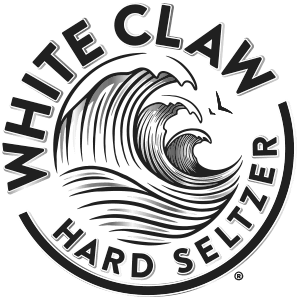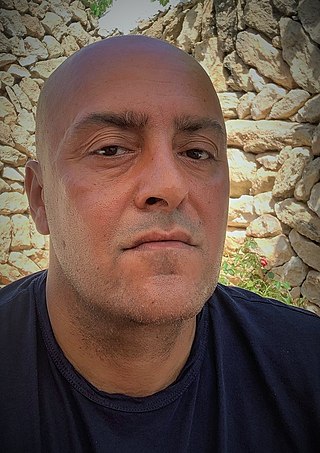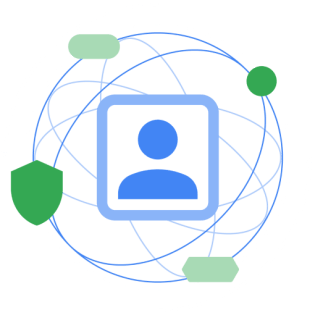
Got Milk? is an American advertising campaign encouraging the consumption of milk and dairy products. Created by the advertising agency Goodby Silverstein & Partners for the California Milk Processor Board in 1993, it was later licensed for use by milk processors and dairy farmers. Got Milk? launched in 1993 with the "Aaron Burr" television commercial, directed by Michael Bay. The national campaign, run by MilkPEP added the "got milk?" logo to its "Milk Mustache" ads beginning in 1995.

Wendy Seltzer is an American attorney and a staff member at the World Wide Web Consortium, where she is the chair of the Improving Web Advertising Business Group. She was previously with Princeton's Center for Information Technology Policy. Seltzer is also a Fellow with Harvard's Berkman Center for Internet & Society, where she founded and leads the Lumen clearinghouse, which is aimed at helping Internet users to understand their rights in response to cease-and-desist threats related to intellectual property and other legal demands.

The Network Advertising Initiative is an industry trade group founded in 2000 that develops self-regulatory standards for online advertising. Advertising networks created the organization in response to concerns from the Federal Trade Commission and consumer groups that online advertising — particularly targeted or behavioral advertising — harmed user privacy. The NAI seeks to provide self-regulatory guidelines for participating networks and opt-out technologies for consumers in order to maintain the value of online advertising while protecting consumer privacy. Membership in the NAI has fluctuated greatly over time, and both the organization and its self-regulatory system have been criticized for being ineffective in promoting privacy.[Missing Citation]
Samba TV is a television technology company that offers real-time insights and audience analytics. It was founded in 2008 by early employees of BitTorrent, including Samba TV's current chief executive officer, Ashwin Navin. It develops software for televisions, set-top boxes, smart phones and tablets to enable interactive television through personalization. Through its portfolio of applications and TV platform technologies, Samba TV is built directly into the TV or set-top box and will recognize onscreen content—live or time-shifted—and make relevant information available to users at their request. The service is available only after a user activates it on a device, and is supported by interest-based advertising delivered on the television or on devices within the household. Through APIs and SDKs for mobile application software developers, Samba TV is usable on a second screen or the TV itself. Samba TV has a global addressable footprint of 46 million devices globally, 28 million of which are in the United States. Its devices are distributed in roughly 118 countries.
Real-time bidding (RTB) is a means by which advertising inventory is bought and sold on a per-impression basis, via instantaneous programmatic auction, similar to financial markets. With real-time bidding, advertising buyers bid on an impression and, if the bid is won, the buyer's ad is instantly displayed on the publisher's site. Real-time bidding lets advertisers manage and optimize ads from multiple ad-networks, allowing them to create and launch advertising campaigns, prioritize networks, and allocate percentages of unsold inventory, known as backfill.

Google Safe Browsing is a service from Google that warns users when they attempt to navigate to a dangerous website or download dangerous files. Safe Browsing also notifies webmasters when their websites are compromised by malicious actors and helps them diagnose and resolve the problem. This protection works across Google products and is claimed to “power safer browsing experiences across the Internet”. It lists URLs for web resources that contain malware or phishing content. Browsers like Google Chrome, Safari, Firefox, Vivaldi, Brave and GNOME Web use these lists from Google Safe Browsing to check pages against potential threats. Google also provides a public API for the service.

Jonathan Mayer is an American computer scientist and lawyer. He is an Assistant Professor of Computer Science and Public Affairs at Princeton University affiliated with the Center for Information Technology Policy, and was previously a PhD student in computer science at Stanford University and a fellow at the Center for Internet and Society and the Center for International Security and Cooperation. During his graduate studies he was a consultant at the California Department of Justice.
Inquisitr, a website started in 2007 for news and entertainment stories, was relaunched in May 2011. It is owned and operated by Inquisitr Ltd.

Google Opinion Rewards is a rewards-based program developed by Google. It was initially launched as a survey mobile app for Android and iOS developed by Google. The app allows users to answer surveys and earn rewards. On Android, users earn Google Play credits which can be redeemed by buying paid apps from Google Play. On iOS, users are paid via PayPal. Users in the available countries who are over 18 years old are eligible. Google Opinion Rewards works with Google Surveys, market researchers make the survey through Google Surveys and answers are received through Google Opinion Rewards by app users. This process provides surveyors with a large pool of surveyees quickly. This "fast and easy" surveying process has been criticized due to contention over the validity of results as well as concern over the privacy and security of the app users' data.

NOYB – European Center for Digital Rights is a non-profit organization based in Vienna, Austria established in 2017 with a pan-European focus. Co-founded by Austrian lawyer and privacy activist Max Schrems, NOYB aims to launch strategic court cases and media initiatives in support of the General Data Protection Regulation (GDPR), the proposed ePrivacy Regulation, and information privacy in general. The organisation was established after a funding period during which it has raised annual donations of €250,000 by supporting members. Currently, noyb is financed by more than 4,400 supporting members.

White Claw Hard Seltzer is an alcoholic seltzer water beverage manufactured by Mark Anthony Group. The beverage was introduced in 2016 and is sold in 12 various flavors.
Pan-European Privacy-Preserving Proximity Tracing (PEPP-PT/PEPP) is a full-stack open protocol designed to facilitate digital contact tracing of infected participants. The protocol was developed in the context of the ongoing COVID-19 pandemic. The protocol, like the competing Decentralized Privacy-Preserving Proximity Tracing (DP-3T) protocol, makes use of Bluetooth LE to discover and locally log clients near a user. However, unlike DP-3T, it uses a centralized reporting server to process contact logs and individually notify clients of potential contact with an infected patient. It has been argued that this approaches compromises privacy, but has the benefit of human-in-the-loop checks and health authority verification. While users are not expected to register with their real name, the back-end server processes pseudonymous personal data that would eventually be capable of being reidentified. It has also been put forward that the distinction between centralized/decentralized systems is mostly technical and PEPP-PT is equally able to preserve privacy.

Globe One Digital is a European digital marketing agency, founded in 1997 by Dimitris K. Papoutsis and headquartered in Athens, providing online marketing strategies and services.

Amir Kassaei is an Austrian art director He was president of the Art Directors Club of Germany and the Art Directors Club of Europe and president of the film jury at the Cannes Lions International Festival of Creativity.
Federated Learning of Cohorts (FLoC) is a type of web tracking. It groups people into "cohorts" based on their browsing history for the purpose of interest-based advertising. FLoC was being developed as a part of Google's Privacy Sandbox initiative, which includes several other advertising-related technologies with bird-themed names. Despite "federated learning" in the name, FLoC does not utilize any federated learning.
Michael Veale is a technology policy academic who focuses on information technology and the law. He is currently associate professor in the Faculty of Laws at University College London (UCL).

The Privacy Sandbox is an initiative led by Google to create web standards for websites to access user information without compromising privacy. Its core purpose is to facilitate online advertising without the use of third-party cookies. The initiative includes Federated Learning of Cohorts as well as other proposed technologies, many of which have bird-themed names. It was announced in August 2019.

Nandini Jammi is an American activist and brand safety consultant. She is a co-founder of the Check My Ads agency and associated non-profit Check My Ads Institute. Previously, she co-founded Sleeping Giants. She informs businesses about their advertisements that appear on conservative websites that she describes as bad faith publishers—websites that publish misinformation or conspiracy theories, or engage in advertising fraud—and pressures them to stop supporting those publishers.

Header bidding is a programmatic advertising technique in which publishers bid on multiple advertising exchanges in real time. Google has been reported to have referred internally to header bidding as an "existential threat".
The W3C Technical Architecture Group (TAG) is a special working group within the World Wide Web Consortium (W3C) created in 2001 to:












